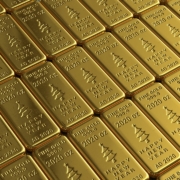How did the USA help Japan’s economy after WW2?
Topic of Study [For H2 History Students]:
Paper 1: Understanding the Global Economy (1945-2000)
Section B: Essay Writing
Theme II Chapter 1: Reasons for growth of the global economy
A shift of US priorities in Japan: ‘Reverse Course’ policy
After Japan was defeated in World War Two, the Allied Occupation oversaw social and political reform of Japan from 1945 to 1946, ensuring that it would not endanger world peace. Under the Supreme Commander for the Allied Powers (SCAP) led by American general Douglas MacArthur, the Japanese military was disbanded and the zaibatsu conglomerates were broken up.
Against the backdrop of the looming Cold War tensions in Europe, the US government relooked its priorities. Instead of punishing Japan for its wartime aggression, the government supported the post-war recovery of Japan, in hopes of cultivating it as a new Cold War ally. This was also known as the ‘Reverse Course’ policy (逆コース).
After the early stages of the Occupation, SCAP began showing a strong interest in stabilizing Japan’s economy near the end of 1946. In spite of the fact that the “Basic Directive” clearly stated that the Occupation would not be responsible for economic reconstruction, faced with the danger of rampant inflation unless production restarted, SCAP had no choice but to become involved in economic reconstruction.
An excerpt from “The Economic History of Japan: 1600-1990: Volume 3: Economic History of Japan 1914-1955: A Dual Structure” by Takafusa Nakamura, Konosuka Odaka and Noah S. Brannen.
Consequences of warm bilateral relations: US aid to Japan
In 1958, negotiations for a US-Japan Security Treaty (日本国とアメリカ合衆国との間の相互協力及び安全保障条約) were underway. In essence, the treaty permitted US military bases in Japan, thereby establishing a military alliance between the two countries.
At the same time, the USA provided a series of economic assistance to build up Japan as a bulwark against communist expansion in Asia. For instance, the US government offered low-interest loans to Japan. These substantial capital injections led to increase in Japanese investments that propelled economic growth.
Additionally, the USA sponsored Japan’s admission to the General Agreement on Tariffs and Trade (GATT) organisation in September 1955. The USA feared that an absence of market for Japanese exports may possibly draw Japan into the Communist bloc for economic cooperation. As such, the Eisenhower administration rejected protectionist demands from local groups in the USA and opened American markets to Japanese exports.
The United States needed Japan as a stable capitalist country that would provide a bulwark against communism in Asia. It therefore supported Japanese membership of the IMF and GATT in 1955 and assisted Japan in improving relations with other Asian countries in the late 1950s and early 1960s, while at the same time keeping its own market open to Japanese goods and making technology and capital available to Japanese enterprises. Japanese capitalism could thus pursue its own interests on the international stage under the umbrella of U.S. world strategy.
An excerpt from “Japanese Capitalism Since 1945: Critical Perspectives” by Tessa Morris-Suzuki and Seiyama Takuro.
From 1958 to 1960, US purchases from Japan rose by more than 150%. This enabled Japan to enjoy its first-ever trade surplus. The correction of Japan’s balance of payment deficits thus allowed it to grow rapidly.
What can we learn from this article?
Consider the following question:
– Assess the importance of the USA in contributing to the economic miracle of Japan after 1945.
Join our JC History Tuition to learn more about the growth of the Global Economy. The H2 and H1 History Tuition feature online discussion and writing practices to enhance your knowledge application skills. Get useful study notes and clarify your doubts on the subject with the tutor. You can also follow our Telegram Channel to get useful updates.
We have other JC tuition classes, such as JC Math Tuition and JC Chemistry Tuition. For Secondary Tuition, we provide Secondary English Tuition, Secondary Math tuition, Secondary Chemistry Tuition, Social Studies Tuition, Geography, History Tuition and Secondary Economics Tuition. For Primary Tuition, we have Primary English, Math and Science Tuition. Call 9658 5789 to find out more.











